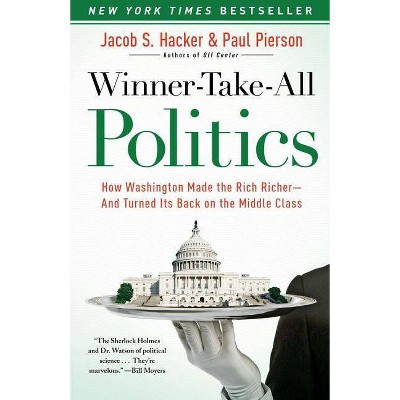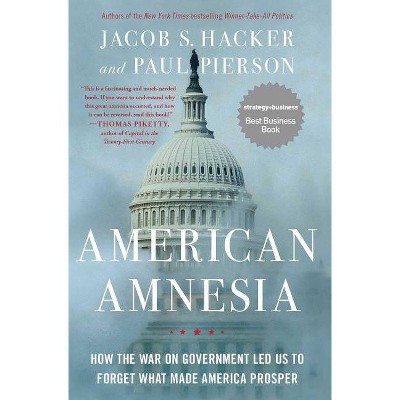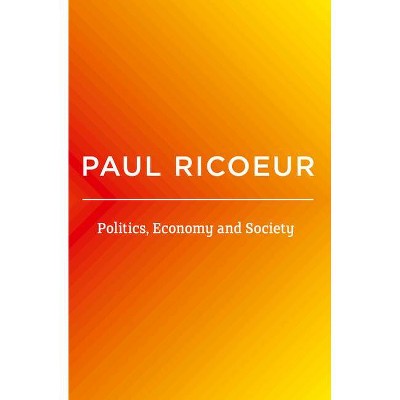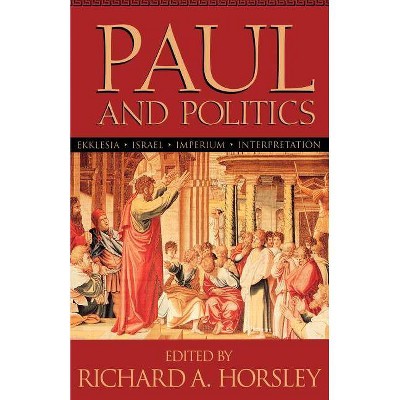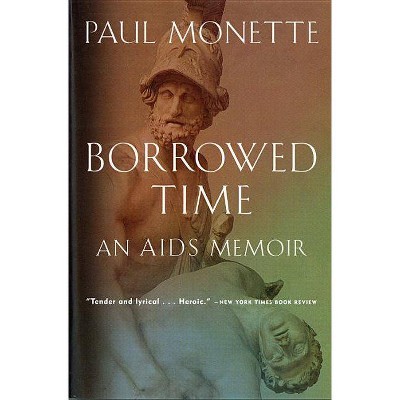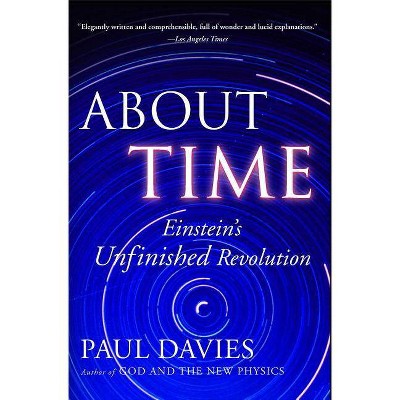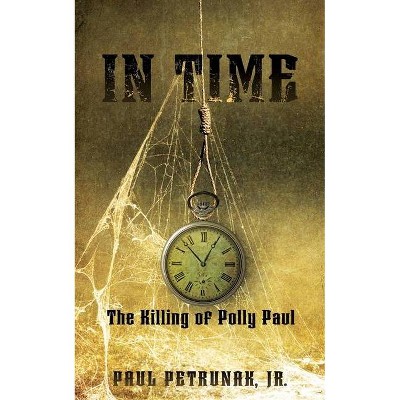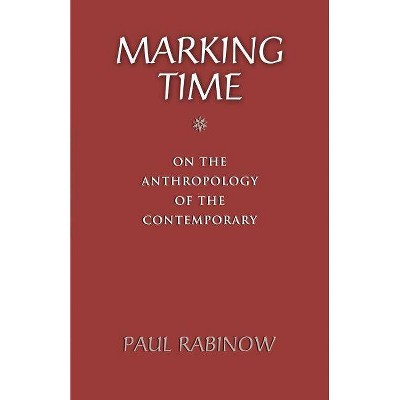Politics in Time - by Paul Pierson (Paperback)
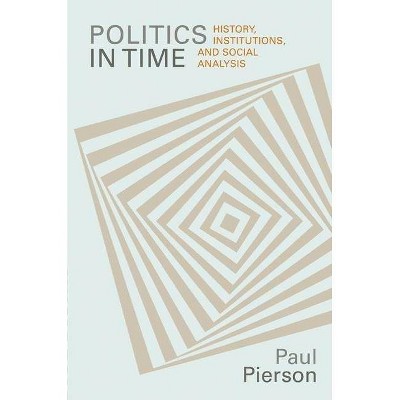
Similar Products
Products of same category from the store
AllProduct info
<p/><br></br><p><b> Book Synopsis </b></p></br></br><p>This groundbreaking book represents the most systematic examination to date of the often-invoked but rarely examined declaration that history matters. Most contemporary social scientists unconsciously take a snapshot view of the social world. Yet the meaning of social events or processes is frequently distorted when they are ripped from their temporal context. Paul Pierson argues that placing politics in time--constructing moving pictures rather than snapshots--can vastly enrich our understanding of complex social dynamics, and greatly improve the theories and methods that we use to explain them. <p/><br> <i>Politics in Time</i> opens a new window on the temporal aspects of the social world. It explores a range of important features and implications of evolving social processes: the variety of processes that unfold over significant periods of time, the circumstances under which such different processes are likely to occur, and above all, the significance of these temporal dimensions of social life for our understanding of important political and social outcomes. Ranging widely across the social sciences, Pierson's analysis reveals the high price social science pays when it becomes ahistorical. And it provides a wealth of ideas for restoring our sense of historical process. By placing politics back in time, Pierson's book is destined to have a resounding and enduring impact on the work of scholars and students in fields from political science, history, and sociology to economics and policy analysis.</p><p/><br></br><p><b> From the Back Cover </b></p></br></br><p>"Every once in a long while a book comes along that shifts the debate entirely by altering the vantage point from which we approach the study of politics. This is such a book. Maneuvering masterfully across diverse literatures and drawing on an extraordinary range of empirical cases, Pierson identifies key mechanisms that give meaning and precision to the abstract claim that history matters. Through analysis and illustration, he provides new insights into exactly how, when, and why this is true. This is an enormously important and agenda-setting work."<b>--Kathleen Thelen, Northwestern University</b></p><p>"Paul Pierson is a leading voice in new social science debates on<br>temporality and path dependence. He has now taken a major step forward by unifying his arguments in an integrated statement. This book will be indispensable for scholars across several disciplines who are concerned with comparative-historical analysis, innovative perspectives on causal assessment, and integrative approaches that bridge qualitative and quantitative methods."<b>---David Collier, University of California, Berkeley</b></p><p>"<i>Politics in Time</i> is a splendid book that will shape debates in political science and beyond for many years to come. It represents the most systematic and thorough statement on theorizing temporal processes in the social sciences ever written. Pierson sets new agendas by challenging researchers to take time seriously, especially those who work in analytic traditions that traditionally have been relatively atemporal."<b>--James Mahoney, Brown University, author of <i>The Legacies of Liberalism</i></b></p><p/><br></br><p><b> Review Quotes </b></p></br></br><br><p>"Paul Pierson is a leading voice in new social science debates on<br>temporality and path dependence. He has now taken a major step forward by unifying his arguments in an integrated statement. This book will be indispensable for scholars across several disciplines who are concerned with comparative-historical analysis, innovative perspectives on causal assessment, and integrative approaches that bridge qualitative and quantitative methods."<b>---David Collier, University of California, Berkeley</b></p><br><br>"<i>Politics in Time</i> is a splendid book that will shape debates in political science and beyond for many years to come. It represents the most systematic and thorough statement on theorizing temporal processes in the social sciences ever written. Pierson sets new agendas by challenging researchers to take time seriously, especially those who work in analytic traditions that traditionally have been relatively atemporal."<b>--James Mahoney, Brown University, author of <i>The Legacies of Liberalism</i></b><br><br>"Every once in a long while a book comes along that shifts the debate entirely by altering the vantage point from which we approach the study of politics. This is such a book. Maneuvering masterfully across diverse literatures and drawing on an extraordinary range of empirical cases, Pierson identifies key mechanisms that give meaning and precision to the abstract claim that history matters. Through analysis and illustration, he provides new insights into exactly how, when, and why this is true. This is an enormously important and agenda-setting work."<b>--Kathleen Thelen, Northwestern University</b><br><p/><br></br><p><b> About the Author </b></p></br></br><b>Paul Pierson</b> is Harold Hitchings Burbank Professor of Political Economy at Harvard University. He is the author of numerous books, including <i>Dismantling the Welfare State?</i> which won the Gladys Kammerer Award in 1995 from the American Political Science Association for the best book on American national politics and policy.
Price History
Cheapest price in the interval: 31.99 on November 8, 2021
Most expensive price in the interval: 31.99 on December 20, 2021
Price Archive shows prices from various stores, lets you see history and find the cheapest. There is no actual sale on the website. For all support, inquiry and suggestion messagescommunication@pricearchive.us
